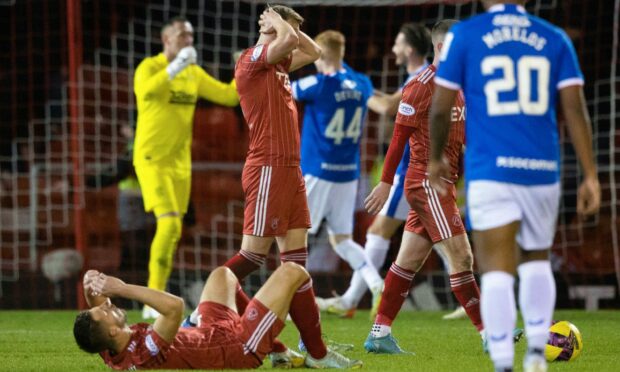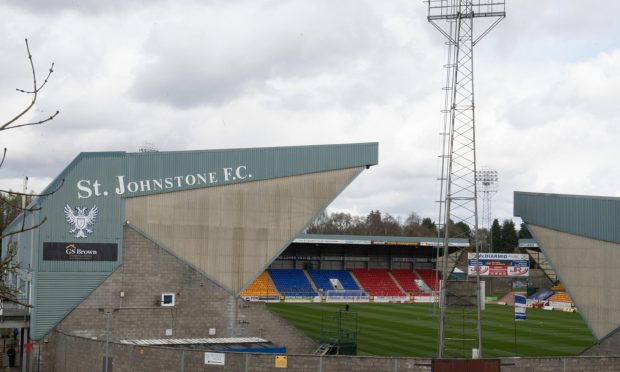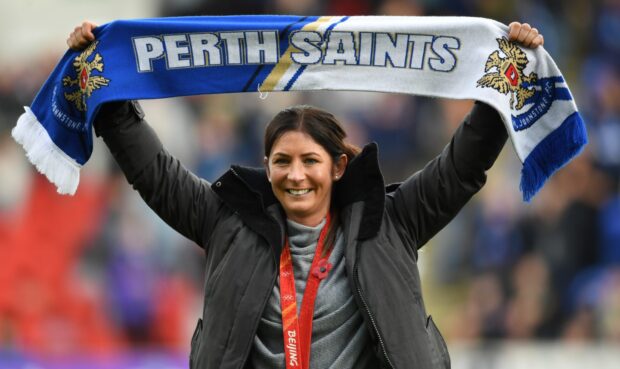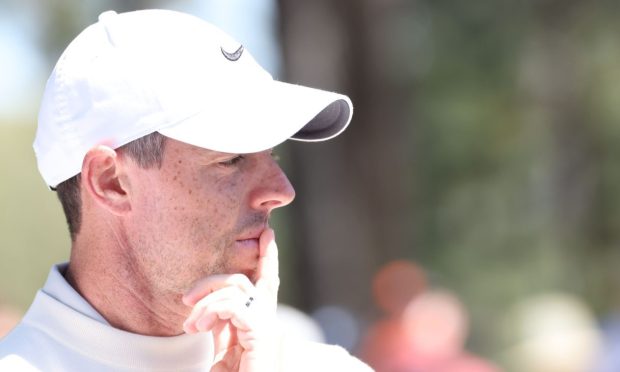A winner’s mentality in the Christmas and New Year fixtures is crucial for the fortunes of all clubs.
In the Premiership, the contrasting fortunes between Dundee United and St Johnstone are stark.
The four games they face in the next two-week period will have a major bearing on whether Saints are serious top six contenders, and whether United can claw themselves free of a relegation battle.
It’s a relentless spell in which that winning mentality will prove to be every bit as important as ability.
Both components are crucial and you can’t have one without the other if you want to achieve success.
For me, the great competitors all have the tough unforgiving mindset of victors.
Aberdeen’s experience in losing to both Celtic and Rangers in a week is a case in point.
WHAT IS HAPPENING?!
Arfield from close-range finds the back of the net and this is a remarkable turnaround in stoppage-time 😱⏰ pic.twitter.com/QhZaBktUAJ
— Sky Sports Scotland (@ScotlandSky) December 20, 2022
Against Celtic, the Dons parked the bus for over 80 minutes and just when it looked like their tactics might work, they were undone by an 87th minute goal.
They then blew a 2-1 lead against Rangers by conceding two cheap goals in the 95th and 97th minutes of the match.
Both results showed different types of mental frailty.
Miller and McLeish
The great Dons’ pairing Miller and McLeish, like Hegarty and Narey at United, were robust in the self-belief department.
They had innate confidence.
If you take a scintilla of doubt on to the pitch or show weakness at any time during a game, strong opponents will smell it like a wolf smells blood.
Great footballers and sports people have mental fortitude in abundance.
Sometimes their haughtiness is classed as arrogance but it’s a vital tool in persuading the opposition that they’re up against an implacable and resolute foe.
Determination in the tackle, never turning your back on a shot when you’re defending, a grim determination to clear the lines without hesitation – all of these characteristics when the legs are weary and begging for rest, and when the brain is fatigued, mark out the top competitors who won’t yield.
Callum McGregor against Aberdeen:
♦️ Touches – 193 (1st)
♦️ Accurate passes – 170 (1st)
♦️ Pass accuracy- 94% (1st)
♦️ Chances created – 6 (1st)
♦️ Final third entries – 31 (1st)
♦️ Possession won – 12 (2nd)And a sublime goal to top it off ⚽️⤵️ pic.twitter.com/nJvkCP7eko
— BBC Sport Scotland (@BBCSportScot) December 18, 2022
Against Celtic, Aberdeen were fearful of venturing forward. That’s a gift to opponents who recognise the fear in their opponents’ minds.
Facing Rangers, trying to hold a narrow lead against the second best side in the country was another sign of self-doubt, and one which was noted then exploited by the Ibrox team which maintained its belief that it could triumph no matter how late the hour.
All managers want players with the right mental attitude in their teams but bosses need it too.
In fact, it should flow from them and infect their team.
McLean mantra
It’s the reason Alex Ferguson and Jim McLean were successful – they demanded perfection.
Jim’s mantra: ‘If you accept mediocrity that’s most certainly what you’ll get’ was spot on.
There should be no acceptance by a manager of players who crack too easily or slacken off when the going gets tough.
Those sort of characters lose points, games, and ultimately cost managers their jobs.
Great training ground players are 10 a penny but on the pitch where it really counts, their weak mentality lets them, their team-mates and supporters down.











Conversation